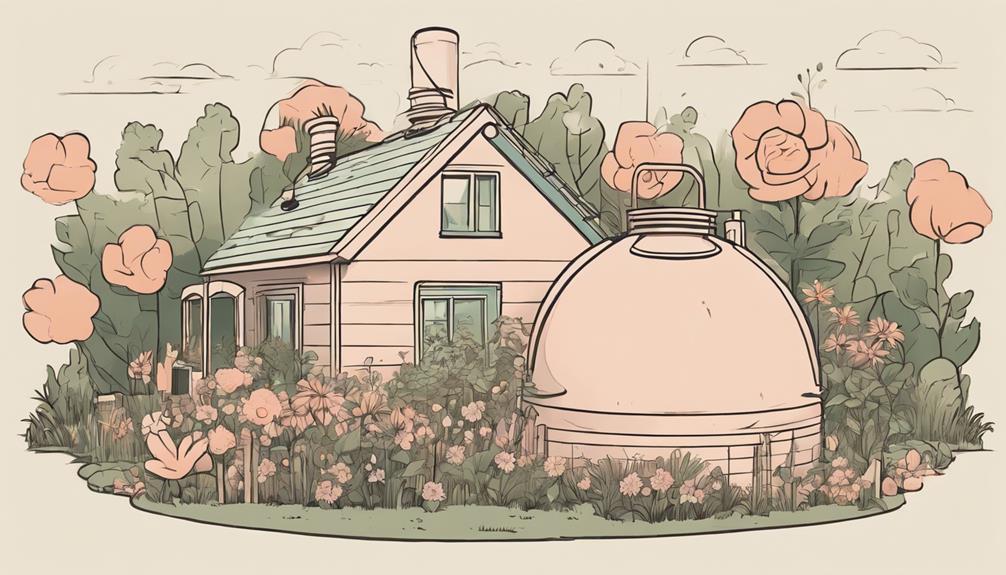“Hi, I moved into a rural house in the outskirts of Dunedin, New Zealand, and I’m
Biogas System Design, Home Biogas
Did you know?
"Plants grown in worm castings grew 3 times faster than identical plants grown in potting mix". Learn how to make your plants & garden thrive with worm composting... Click Here To Learn How.
Making your own biogas at home is an incredibly fulfilling and eco-friendly venture. Not only can you generate renewable energy for cooking and heating, but you also get to reduce your household waste in the process – no more food scraps going to waste! It's a fantastic way to embrace sustainable living and cut down on energy bills while doing something good for the environment...

Here are the basics making biogas at home. Keep scrolling down to find hundreds of expert home biogas Q&As sent in by site visitors and readers over the years...
Home biogas is a system that turns organic waste, like food scraps and animal manure, into renewable energy (biogas) and liquid fertilizer. It’s a natural process where bacteria break down the waste in an oxygen-free environment (anaerobic digestion), producing methane gas that can be used for cooking or heating.
You can use kitchen scraps, animal manure, and even garden clippings. Things like fruit peels, veggie scraps, and food leftovers work well. Avoid things like bones, plastics, or chemicals - they don’t break down and can harm the system.
It depends on how much organic waste you have. On average, a small family can produce enough biogas for a couple of hours of cooking each day just from daily food scraps and kitchen waste.
Yes, it’s safe if used correctly! Just like natural gas, biogas can be piped directly to your stove or heater. The systems are designed with safety in mind, including pressure release valves and air-tight digestion tanks to prevent leaks.
Most home biogas systems come as easy-to-assemble kits. You’ll need a spot in your backyard for the system, ideally in a sunny location to help maintain the right temperature for the bacteria. Setup usually takes a few hours, and after that, it's just about feeding it waste regularly.
Home biogas reduces your reliance on fossil fuels, lowers your energy bills, and cuts down on the waste that would otherwise end up in a landfill. Plus, you get free liquid fertilizer for your garden!
Prices can vary, but a small home system typically costs between $600 and $1,500 depending on size and features. While the upfront cost might seem high, you’ll save on energy and fertilizer over time, making it a worthwhile investment. You can of course also look at DIY options and build your own.
Yes, but it works best in warmer climates because the bacteria need warmth to stay active. In colder areas, you might need to insulate the system or add a heater to keep it running efficiently through the winter months.
Maintenance is pretty simple. You just keep feeding the system with organic waste and occasionally clean out any undigested materials. Most systems come with a user guide that makes maintenance easy to follow.
It usually takes a few weeks for the system to start producing gas after it’s set up and fed. The bacteria need time to build up and begin breaking down the waste, but once it’s going, you’ll have a regular supply of biogas.
If you're looking for some of the most popular books about making your own biogas at home, we recommend adding the following to your library...
Hundreds of home biogas Q&A's that our newsletter readers & site visitors have sent in over the years, answered by our experts...
Biogas System Design, Home Biogas
Biogas Environmental Impact, Home Biogas
Biogas System Operation & Maintenance, Home Biogas
Biogas System Safety, Home Biogas
Biogas Basics, Home Biogas
DIY Biogas Systems, Home Biogas
Biogas Usage, Home Biogas
Biogas Feedstock, Home Biogas
Biogas Environmental Impact, Home Biogas
DIY Biogas Systems, Home Biogas
Biogas System Design, Home Biogas
Biogas Basics, Home Biogas
Biogas System Operation & Maintenance, Home Biogas
Biogas System Safety, Home Biogas
Biogas Usage, Home Biogas
Biogas Feedstock, Home Biogas
Biogas Environmental Impact, Home Biogas
Biogas System Operation & Maintenance, Home Biogas
DIY Biogas Systems, Home Biogas
Biogas System Design, Home Biogas
Here are some additional biogas resources you might find valuable. If you have a website you would like listed here, please contact us.
If you have a website useful for those interested in learning more about biogas, get in touch with us so we can add it here.